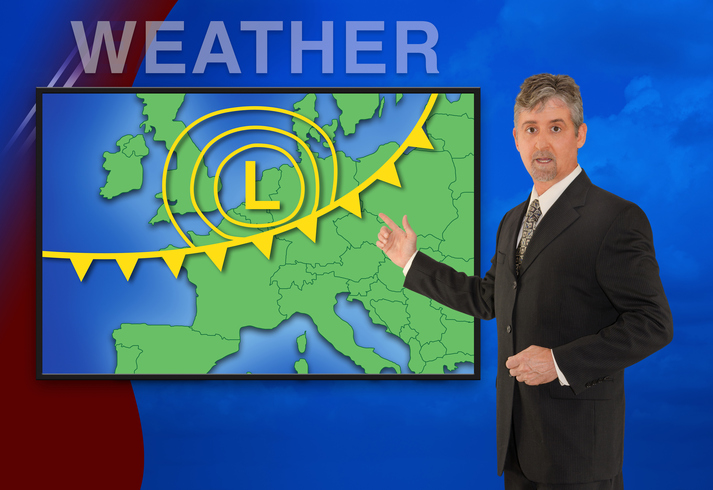By Norman Rogers
Climate change prophecy hangs its hat on computer climate models, yet these models have gigantic problems.
Kevin Trenberth, who was once in charge of modeling at the National Center for Atmospheric Research, has stated “[None of the] models correspond even remotely to the current observed climate [of the Earth].”
Despite the fact that models can’t properly model the Earth’s climate we are supposed to believe, if carbon dioxide has a certain effect in the models of Earth it will have the same effect on the real Earth.
Money and Confirmation Bias
Climate models are an exemplary representation of confirmation bias, the psychological tendency to suspend one’s critical facilities in favor of welcoming what one expects or desires. Climate scientists can manipulate numerous adjustable parameters in, or tune, the models in order to produce a “good” results.
Technically, a good result would be that the climate model output can match climate history. But that good result competes with another kind of good result. That other good result is a prediction of a climate catastrophe. That sort of “good” result has elevated the social and financial status of climate science into the stratosphere.
Once money and status started flowing into climate science because of the disaster its denizens were predicting, there was no going back. Imagine that a climate scientist discovers gigantic flaws in the models and associated projections. That would open the door ending the massive flow of research dollars.
Who would continue to throw billions of dollars a year at climate scientists if there were no disasters to be prevented? Evidence shows, discoverers of flaws are demonized and attacked as a pawn of evil interests: David Legates, Richard Lindzen, Roy Spencer, and Willie Soon, among others, come to mind.
Making Models Fit
Testing models against history and assuming they can then predict the future invites failure.
Failure is almost ensured modelers adds ever more adjustable parameters to enhance the model. At some point, one should ask if we are fitting a model to reality or doing simple curve fitting. Models that have degenerated into curve fitting, lack any serious predictive capability.
A strong indicator that climate models are well into the curve fitting regime is the use of model averaging or ensembles.
The International Panel on Climate Change (IPCC) averages together numerous models (an ensemble), in order to make a projection of the future. Asked why they do this rather than work with the models that best reflect reality, they assert the ensemble method works better.
This is contrary to common sense.
In truth, various models disagree dramatically with one another about the Earth’s climate, including how big the supposed global warming catastrophe will be. With the sole exception of a model from Russia, no model used by the IPCC denies a catastrophic future looms.
There is a political reason for using ensembles. In order to receive the benefits flowing from predicting a climate catastrophe, climate science must present a unified front. Dissenters have to be canceled and suppressed.
If the IPCC were to select the best model or models, dozens of other modeling groups would be left out. They would, no doubt, form a dissenting group questioning the authority of those that gave the crown to one particular model. Using ensembles, every group receives rewards and everyone is encouraged keep the conspiracy against humanity going.
Past as a Problem
Fitting the models to climate history is difficult because climate history is poorly documented or unknown.
There are scientific groups that specialize in examining and summarizing the vast trove of past climate history. Their summaries “improve” on the original data in ways that always seem to support global warming catastrophe. The website realclimatescience.com specializes in exposing this tampering with climate history.
Because so much of climate history is unknown, modelers make up the missing history. Each modeling team is free to make up the history that fits its narrative. It would be very surprising if modelers weren’t manipulating their fabricated climates to make their models behave better.
Scientists are always cautioned not to fall in love with a theory or method. If they do, they will lose their objectivity. Facts that support their preconceptions will be celebrated, facts that cast doubt on their love will be ignored or forgotten. But if you spend years, or decades, married to a modeling methodology, divorce becomes less and less likely.
Enter the NAS
The National Academy of Sciences (NAS) in Washington, DC touts itself as the science advisor to the government.
Their advice has some common threads.
They never criticize the scientific establishment. Also, they always promote spending more money on science. Like the teachers’ unions, they pretend to support the common good but actually promote their constituency’s special interests.
The NAS sponsored a report on the future of climate modeling.
They apparently saw nothing wrong with staffing the study committee with professional climate modelers. The report advocated more money for climate modelers and urged hiring professional public relations people to present results to the public.
‘100 Percent Junk Science’
The purported climate catastrophe ahead is 100 percent junk science.
Recent climate change is not historically unprecedented or extraordinary, nor do measured climate trends show a long-term worsening.
In the unlikely event at climate catastrophe occurs, it will be coincidental that it was predicted by climate scientists.
Norman Rogers is the author of the book Dumb Energy, about wind and solar energy. He is on the board of the CO2 Coalition.
This commentary is a modified version of a commentary first published by the American Thinker.
